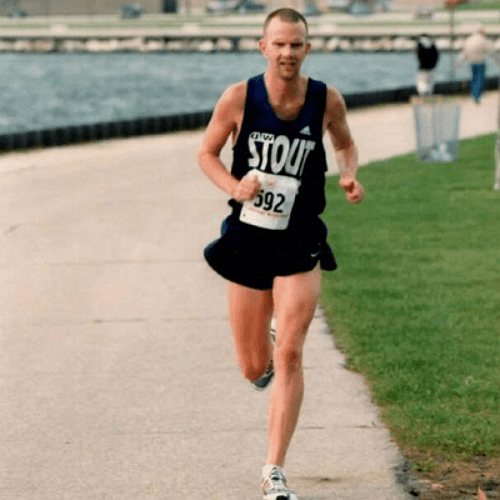
About a month ago, I ran a 5 mile race at 6:03 pace. Cesar asked me how I could run that pace for a 5 mile race when my mile repeat workouts were slower (generally 6:20-6:30 pace in early spring, working down to 6:10-6:20 pace). As I recall, I offered a two part response.
First, I was doing shorter repeats at faster than 6:00 pace so it wasn’t a pace I was unfamiliar with.
Second, I wasn’t racing my workouts. I would expect my mile repeats to be slower than 5 mile race pace. If they weren’t, I’d be close to race effort in my workouts.
I do regularly see people do workouts at close to race effort. To me, this is an indication of a problem. When this happens, either they are racing their workouts or they are not running up to their potential on race day. Very possibly, they are not running up to their potential on race day BECAUSE they are racing their workouts.
So how do we avoid this? Sustainable workouts. For most runners, doing more than one or two workouts per racing season that leave you completely exhausted is counterproductive. For many, doing even a single workout like that is counterproductive.
Far better is to do more sustainable workouts, still hard workouts but not the ones that leave you rubber legged and feeling like death at the end.
Ask yourself: What’s most important? Next week’s workout or your big fall race? Then run next week’s workout accordinly. Don’t dig a hole that you won’t be able to get out of. Save the big effort for race day.

Very good post!! You definetely know how to train Smart!! I should learn to train like that, since my best workouts were far better than my PR. For example, in the past I could do 5 x 1k in 3:45-3:55 (6:05-6:20 per mile) I could never run faster than 20:32 in the 5k eventhough the workouts suggested that I could surely run sub 20 mins in the 5k.
Cesar, understand that this is a constant battle. From my observation, many runners are overachievers by nature. I tend to think running attracts overachievers.
It’s unnatural for an overachiever to want to finish any run, much less something termed a hard day, anything but completely exhausted. How much am I accomplishing if I am not giving 100% every day or at the very least on my hard days?
What we need to understand is that we get more by doing less. That’s especially true on easy days when recovery is the focus but it’s also true to some extent on workout days. Harder isn’t always better. You can get more out of a workout that leaves you tired but still on your feet than one that leaves you with your hands on your wobbly knees. Part of that is because you will be able to do more workouts and part of it is because you are building yourself up instead of tearing yourself down.
Disagree….. breakthroughs are proven on your workouts…… your race results is a mere image of your efforts!!😜…, You teach your body to push the limit on structural workouts so it becomes second hand on race day!!
Leo, I respect your differing opinion but, based on my personal experience and observations of many runners as well as talking with many coaches about this topic, I have to respectfully disagree with your opinion. You build your fitness in workouts without pushing your body to its limit, then you push the limit in races.
If you are doing no tune-up races, there may be some benefit in an occasional workout that simulates a race but I think those efforts are better saved for race situations themselves since no simulation can capture the atmosphere and many unique circumstances of race day itself.